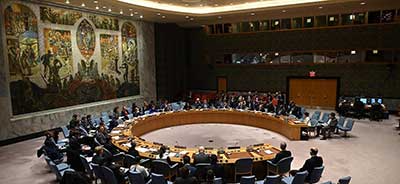Date: 11/10/2022
Relevance: GS-2: Bilateral, Regional, and Global Groupings and Agreements involving India and/or affecting India’s interests.
Key Phrases: League of Nations, Multilateralism, the Group of 20, UN Security Council (UNSC), Shanghai Cooperation Organisation (SCO), China’s Belt and Road Initiative (BRI), China’s Global Development Initiative, 2021.
Why in News?
- The League of Nations, set up in 1920, was the first intergovernmental organization to promote international cooperation and outlived its utility with World War II.
- The United Nations claims to be the one place where all the world’s nations can discuss common problems and find shared solutions that benefit all of humanity.
- Now, 75 years later, rising conflict situations suggest it is time to go back to the first principles of the Charter (maintain international peace and security).
UN at a turning point:
- Multilateralism under challenge:
- The gridlock does not flow from bilateral relations but from the way international cooperation is being re-defined.
- Multilateralism is under challenge even by its proponent, with the United States opting for partnerships, with the most important areas being the worst affected.
- The G7 Summit, held in June, endorsed the goals of a cooperative international Climate Club to accelerate climate action outside the UN.
- The dispute settlement mechanism of the WTO without the quorum of its members has rendered the institution dysfunctional.
- Despite the G7 having accepted the need for the transfer of funds at Rio in 1992, because of their role in creating the climate crisis, the promise made in 2009 to provide at least $100 billion per year in climate finance remains unfulfilled.
- China setting rival set of multilateral institutions:
- China’s Belt and Road Initiative (BRI) seeks to achieve policy, infrastructure, trade, financial, and people-to-people connectivity by building a new platform for international cooperation to create “new drivers of shared development”, and covers half the world population with one-third of the GDP and investment of $930 billion.
- China’s Global Development Initiative, 2021, and linked Global Security Initiative, 2022, are developing a conceptual frame responding to an urbanizing world, i.e., digital governance and non-traditional security, which the international system has not covered.
- Deepening divide between world powers:
- More significant than the clash of institutions reflecting the deepening divide between the Atlantic powers and the Russia-China combined is the diffusion of wealth, technology, and power.
- The ‘rest’, despite threats, are now capable of not taking sides and are looking for leadership within the United Nations, for what the UNSG characterized as the “coalition of the world”.
Opportunity for India:
- India’s Presidency of the Group of 20, UN Security Council (UNSC) in 2022, and the Shanghai Cooperation Organisation (SCO) in 2023 when major powers are not even talking to each other and India alone, now the fifth largest economy, is interacting with each of them, presents a historic opportunity.
Focus areas for India:
- Need for better rules and principles:
- Strategists in major powers see the world in binary terms around rules. In a multipolar world, the question is the kind of rules needed for human well-being and whether principles would serve the purpose better.
- Time for big ideas:
- The time is ripe for a ‘big idea’ that both keeps away from the current multilateral focus on global rules, amount of aid and inviolability of IPRs as well as recognizes a role for competing institutions as countries can now secure the best terms themselves without bargaining.
- Universal socio-economic principles:
- Just as the ‘Rio principles’ continue to guide climate change, vasudhaiva kutumbakam, or ‘world as one family’, focusing on comparable levels of well-being can be the core of a set of universal socio-economic principles for a dialogue between the states.
- Equitable sustainable development:
- The current global consensus around equitable sustainable development, has added a clearer societal purpose to flesh out a universal civilizational principle.
- ‘Lifestyle for Environment’ sees climate change as a societal process and combating it devoid of trade-offs characteristic of the Climate Treaty.
- Redefining common concerns:
- Redefining ‘common concerns’ in terms of the felt needs of the majority rather than the interests and concerns of the powerful will shift the focus of a much slimmed-down United Nations squarely to human wellbeing, and not as an add-on.
Conclusion:
- India's presidency of multiple forums reflects its ability to engage the world to come together to tackle crucial challenges that confront the world.
- It is by pursuing this approach, alongside traditional engagements, that India can demonstrate what it brings to the table as it assumes the presidency. In doing so, it will also show what it can - and should - bring as a permanent member and responsible global leader.
Source: The Hindu
Mains Question:
Q. What is the significance of India’s Presidency of the G20, SCO, and UNSC and how will it help India reinvent the mandate of these organizations?






















